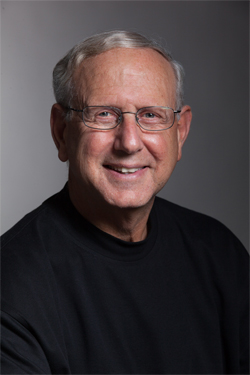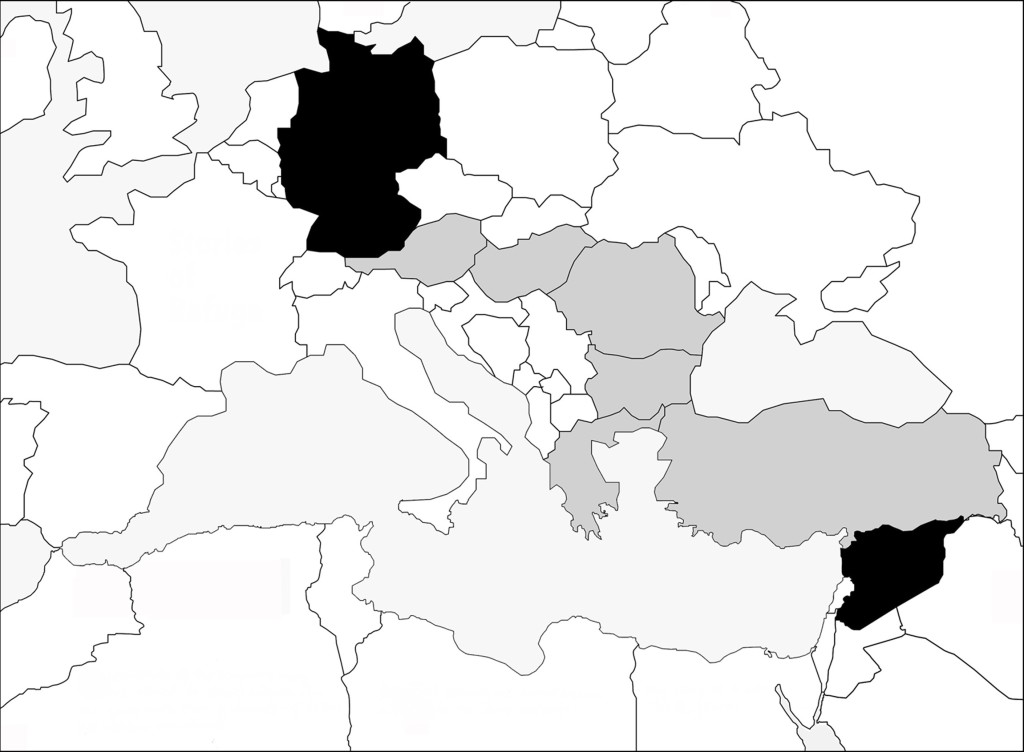The Contemporary History Institute sponsors the airing of the documentary REFUGE: Stories of the Selfhelp Home, directed by Ethan Bensinger, on Thursday, Oct. 17, at 4:30 p.m., in the Baker Theater. Bensinger is available for questions after the film. This event is free and open to the public.
This is a one-hour documentary that reaches back more than 70 years to give a voice to the last generation of victims of Nazi persecution. The film weaves together historical narrative, archival footage and deeply personal testimony to explore the lives of six Chicagoans against the context of the Nazi cataclysm and tell the story of a singular community that has given refuge to more than 1,000 Central European Jewish refugees and survivors.
Mr. Bensinger will be available for Q&A after the film.
 In 2007, Bensinger created for the Selfhelp Home an archive of personal interviews with 30 residents who had been victims of Nazi persecution. Today, this archive can be found at Selfhelp, the Spertus Institute of Jewish Studies in Chicago, and online, courtesy of the Leo Baeck Institute in New York.
In 2007, Bensinger created for the Selfhelp Home an archive of personal interviews with 30 residents who had been victims of Nazi persecution. Today, this archive can be found at Selfhelp, the Spertus Institute of Jewish Studies in Chicago, and online, courtesy of the Leo Baeck Institute in New York.
Bensinger’s parents and grandparents were forced to flee the Nazi regime in the 1930s for a new life in Palestine. Bensinger was born after the state of Israel was founded and then moved with his family to the United States in 1955. His family’s experience led him to his chosen profession as an immigration lawyer. For 25 years, he served as the Managing Director of the Chicago office of a global immigration law firm.
Since his retirement from law, Bensinger has been involved in volunteer and philanthropic endeavors. He has also taken his interest in history and archaeology to write his blog, Sightseeing In Israel, a virtual tour of some of the most interesting “off the beaten track” sites to explore when traveling to Israel. With his film REFUGE, Bensinger has turned his love of gathering historical narratives into a new career in filmmaking. That project inspired him to film a one-hour documentary that highlights the diverse experiences of six of those Selfhelp residents and three of the home’s founders, before, during and after World War II.
About the Movie REFUGE, Director’s Statement
The social and economic upheavals of Germany in the 1930s have impacted me since my earliest childhood. My life has been shaped by the trauma of my family’s experience of being uprooted from Germany in the years preceding the Holocaust. Leaving behind family, home, friends and everything that was familiar and comfortable, they were just one of hundreds of thousands of Jewish families whose lives were dislocated by the Nazi regime.
Able to flee as refugees to pre-state Palestine, and becoming refugees yet again in coming to America, they were the lucky ones. Twenty-five of my family members were murdered by the Nazis.
This personal experience of dislocation and loss is one of the reasons I wanted to explore the story of Selfhelp though REFUGE: Stories of the Selfhelp Home. Selfhelp, a refuge for more than 1,000 victims of Nazi persecution, is an unusual microcosm of the Central European Jewish experience.There live concentration camp survivors, as well as middle-class Jews who left before the World War II to become refugees in the United States, Palestine, Shanghai, and South America. There are those who went into hiding in France, and residents who as children were brought to safety in England through the Kindertransport. How did all of these people survive during the Holocaust, in hiding, in concentration camps or as refugees? Hope. Luck. And something else: strength of character, perseverance and resiliency.
What is found at Selfhelp today is a strong feeling of community and of comfort, which is known in German as “gemutlichkeit.” Underlying this is a profound sense of grief. At heart, Selfhelp is a story of dislocation. Its residents share a history of separation from family and place, of loss, but also of rebirth in America. This is also the story of my family.
Our film explores a community that will not exist for much longer. Within 10 years or so, there will be no Jewish victims of Nazi persecution living at Selfhelp. Out of the 30 refugees and survivors I originally interviewed five years ago, just a dozen are still alive today, all in their 90s and above. As a filmmaker, I feel obligated to give a voice to these last eyewitnesses to life as it was before, during and after the war, so that future generations understand the consequences of intolerance, injustice and unmitigated hatred. Through the lens of my own family’s experience, this is a role that comes naturally to me.




















Comments